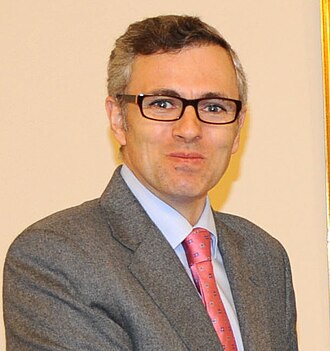In a significant political development, Jammu and Kashmir Chief Minister Omar Abdullah chaired the first meeting of his newly formed Cabinet, where a resolution for the restoration of Statehood to the Union Territory (U.T.) was passed. This move has reignited political debates, with Opposition parties sharply criticizing the government’s shift in focus from the abrogation of Article 370 to statehood restoration.
The meeting, held at the Civil Secretariat in Srinagar on Thursday, marked the official beginning of Mr. Abdullah’s leadership following his election as Chief Minister. The resolution, which called for the reinstatement of J&K as a state, was seen as a critical agenda point during the Cabinet’s discussions.
Statehood restoration at the forefront – sidelining the reintroduction of Article 370
According to official sources, the resolution appeals to Prime Minister Narendra Modi for the swift restoration of statehood, a demand that has gained momentum since the revocation of Jammu and Kashmir’s special status in August 2019. At that time, Article 370 of the Indian Constitution, which provided special autonomy to the region, was abrogated, and the erstwhile state was bifurcated into two Union Territories: Jammu and Kashmir, and Ladakh.
The Cabinet note, which was unanimously supported by Chief Minister Abdullah’s five Ministers, specifically urges the Prime Minister to address the “long-standing demand” for returning Jammu and Kashmir to full statehood status. “The people of J&K deserve the dignity and autonomy that comes with statehood,” a senior official privy to the Cabinet discussions stated.
Despite the resolution’s focus on statehood, Opposition parties were quick to condemn the move, accusing the Chief Minister of deviating from the critical issue of restoring Article 370. “The resolution is an attempt to sideline the fight for J&K’s special status under Article 370, which was unlawfully abrogated in 2019,” said a spokesperson for the National Conference (NC), a prominent party in the region that has consistently advocated for the reintroduction of Article 370.
The Opposition further argued that statehood, though important, does not address the core issue of autonomy that Article 370 once provided. “This government is veering away from the real goalpost. Statehood without Article 370 is incomplete and does not fulfil the aspirations of the people,” said an Opposition leader from the People’s Democratic Party (PDP).
A Balancing Act for the Government
For Chief Minister Omar Abdullah, the statehood resolution represents a delicate balancing act. While his government is pushing for the restoration of full statehood, the issue of Article 370 remains a deeply emotive subject for many in the region. However, insiders suggest that the Abdullah-led government sees statehood as a pragmatic first step in rebuilding trust and stability in Jammu and Kashmir after years of political uncertainty.
“The statehood demand has always been part of our political vision,” a senior leader from Abdullah’s party, the Jammu and Kashmir National Conference (JKNC), stated. “But we also recognize the complexities involved with Article 370. Our focus, for now, is on achieving statehood, after which other matters can be discussed.
As the resolution gains political attention, it remains to be seen how the Central government will respond to the statehood demand. In recent months, the Centre has signalled its openness to considering the restoration of statehood but has remained firm on its stance regarding Article 370, insisting that the decision to abrogate the provision was final.
The political discourse in Jammu and Kashmir now hinges on the interplay between these two demands. While statehood restoration is seen as an achievable goal by many, the path to restoring Article 370 remains fraught with legal and political challenges. For now, Omar Abdullah’s government will likely focus its efforts on navigating the statehood issue, with the ultimate aim of reestablishing Jammu and Kashmir as a fully empowered state within the Indian Union.
In the coming weeks, political analysts expect intensified debates over the merits of the statehood resolution, with Opposition parties likely to continue pushing for broader autonomy under Article 370. Meanwhile, the people of Jammu and Kashmir await further developments, hoping for a resolution that addresses both their political aspirations and the region’s future stability.
As Jammu and Kashmir grapples with its political future, one thing is clear: the passage of the statehood resolution has set the stage for an important chapter in the region’s ongoing quest for autonomy, dignity, and governance.






